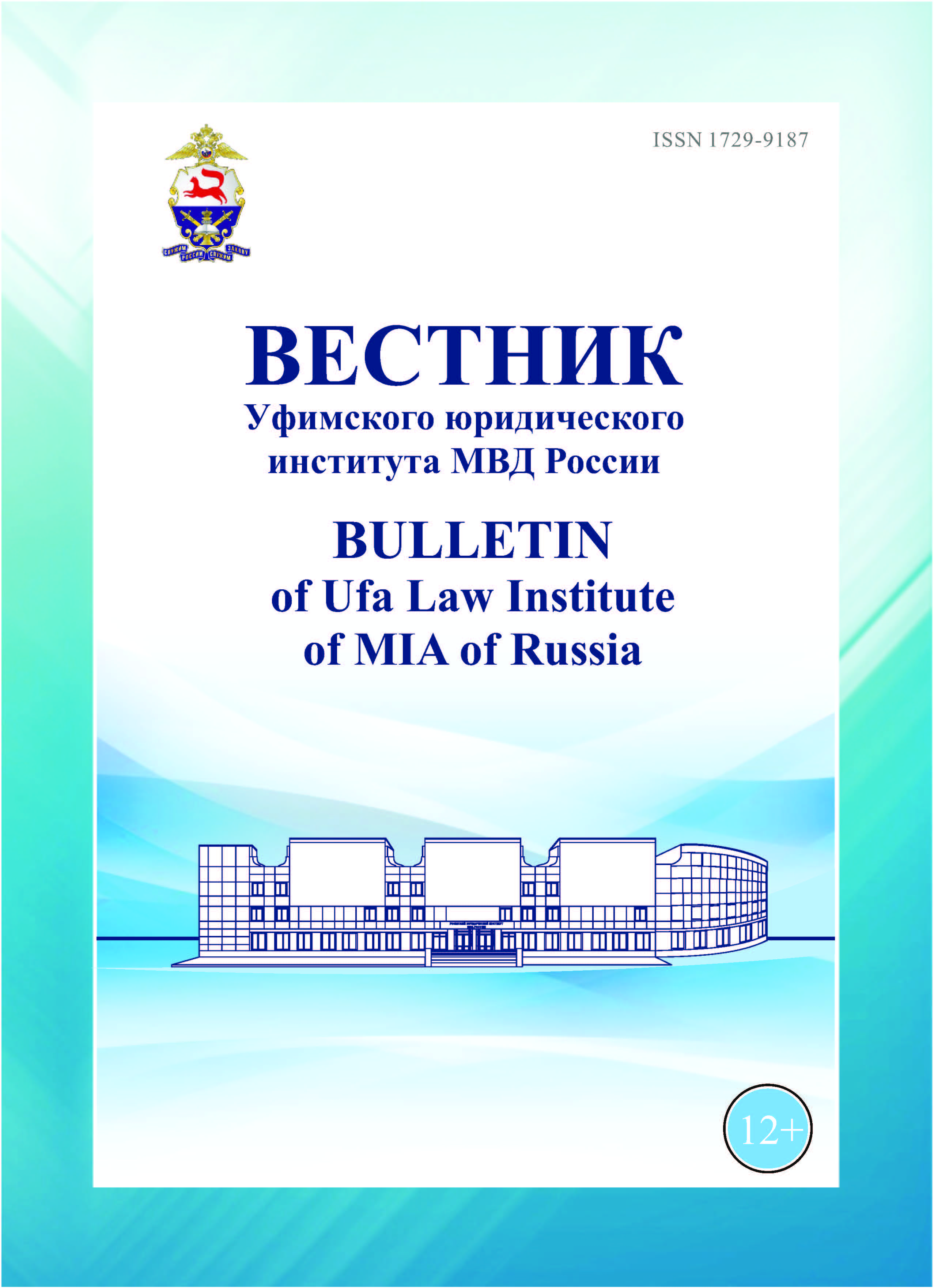Russian Federation
UDC 811
The article highlights the functioning of the network sociolect in the professional environment of the educational establishment of the Ministry of Internal Affairs of Russia. It is noted that the speech portrait of a law enforcement officer as a linguistic personality realizing itself in an urban environment is distinguished by bilingualism, which consists in the close connection of three language systems: urban vernacular, police sociolect, network sociolect. The specificity of this bilingualism is associated with the general digitalization of modern society, including the digitalization of the educational process of universities in the Russian Ministry of Internal Affairs system. Using the example of the Ural Law Institute of the Ministry of Internal Affairs of Russia, the author shows that a law enforcement officer, carrying out educational activities, is fluent in online sociolect. At the same time, in various communicative situations, from official professional communication to casual friendly conversation, an officer can use both highly specialized computer terminology and jargon created on the basis of this terminology. The author concludes that the network sociolect has firmly entered our life and has become an integral part of the speech portrait of a modern linguistic personality, including the linguistic personality of a staff member of internal affairs agencies.
bilingualism, Internet slang, speech portrait, network jargon, network sociolect, digitalization of the educational process
1. Shcherba L. V. Selected works on the Russian language. Moscow: Uchpedgiz, 1957. 188 p. (In Russ.)
2. Vepreva I. T. Language reflection in the post-Soviet era. Ekaterinburg: Ural Publishing House. Univ., 2002. 380 p. (In Russ.)
3. Kupina N. A., Gasparov B. M., Astashova O. I. Russian language in a multi-speech social space. Moscow: Flinta, 2024. 324 p. (In Russ.)
4. Issers O. S. Communicative strategies and tactics of Russian speech. Moscow: URSS: KomKniga, 2005. 284 p. (In Russ.)
5. Larin B. A. On the linguistic study of the city // Russian speech. Leningrad, 1928. Issue. 3. P. 61–75. (In Russ.)
6. Erofeeva T. I. Sociolect: stratification study. Perm: Perm State University, 2009. 240 p. (In Russ.)
7. Tikhtievskaya M. A. Network jargon and its role in the acculturation of a foreign language // Philological Sciences. Questions of theory and practice. Tambov: Gramota, 2016. No. 12 (66): in 4 parts. Part 2. P. 175– 177. (In Russ.)
8. Stetsenko N. V., Shirobakina E. A. Digitalization in the field of physical culture and sports: the state of the issue // Science and sport: modern trends. 2019. Vol. 22. No. 1(22). P. 35–40. (In Russ.)
9. Strekalova N. B., Podublybina O. I. Digitalization of the economy as a pedagogical problem // Bulletin of Samara University. History, pedagogy, philology. 2021. Vol. 27. No. 4. P. 99–106. (In Russ.)
10. Tyukavkin N. M. Digitalization of educational processes in universities // Expert: theory and practice. 2019. No. 1 (1). P. 35–40. (In Russ.)
11. Smaliy N. A., Silakova D. V. Internet user jargon as a social and linguistic phenomenon // Youth and the XXI century – 2012: materials of the IV International Youth Scientific Conference. Kursk: Closed Joint Stock Company “University Book”, 2012. (In Russ.)
12. Babalova G. G., Shirobokov S. N. Computer slang // Omsk Scientific Bulletin. 2015. No. 3 (139). P. 38–42. (In Russ.)
13. Vinogradova N. V. Computer slang and literary language: problems of competition // Research on Slavic languages, 2011. No. 6. P. 203–216. (In Russ.)
14. Krongauz M. A. Dictionary of the Internet language.ru / M. A. Krongauz, E. A. Litvin, V. N. Merzlyakova and others; edited by M. A. Krongauz. Moscow: AST-Press, 2016. 287 p. (In Russ.)









